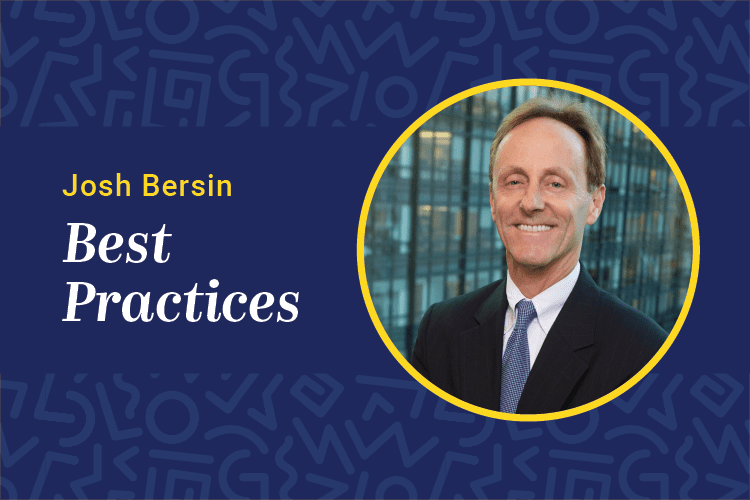
Careers are changing faster than ever. Oxford University predicts that nearly 50 percent of all jobs will be transformed in the next 20 years. I believe it’s happening far faster.
Everywhere I go, nearly every CEO and CHRO I meet with tells me they are automating jobs, redesigning their organization and building new digital business models throughout their companies. In every one of these cases jobs are changing, dramatically impacting the whole idea of a career.
Let me give you some perspectives on this profound issue. Three colliding factors have come together to make this the No. 1 issue facing learning and development organizations.
First, automation is happening faster than ever. Our research for the Deloitte “Human Capital Trends” report this year showed that 41 percent of companies are rapidly adopting artificial intelligence and robotics to change jobs and 66 percent believe the use of gig workers will dramatically increase in the next three to 5 years. I met with a retailer in Europe recently who told me almost a third of their jobs will be impacted.
Second, we are getting older (and younger). Perhaps the most important scientific breakthrough in the world is longevity. According to a study conducted by an international consortium of more than 700 researchers led by the Institute for Health Metrics and Evaluation at the University of Washington, a child born today will live four to six weeks longer than a child born only one year ago.
That means workers will work into their 70s and 80s on a regular basis, extending careers to 60 or 70 years or more. And as the birthrate is low in most developed countries and well below replacement rate in the United States, United Kingdom, Germany and many other countries, we need these older workers. What will they do?
Third, organizations are being redesigned. This year 88 percent of companies told us they were going through a major organizational redesign. That means creating new team structures, different managerial roles and more service and technical jobs.
What can you do about all this? Redesign the concept of a career.
The jobs of the future are more hybrid and multidisciplinary, more social and service- and empathy-based, and more focused on integration, design and listening. We need people to train machines and apply machines well — not just use them.
While we may think all the new jobs will be engineering, this is not true. Research shows that only 8 to 12 percent of all jobs in the economy are based on building or repairing machines. The rest of us are sales people, team leaders, designers or service professionals. One of the fastest growing careers in the world is health care work. These are jobs with accelerating salaries and great career opportunities and they focus on people and using machines, not building them.
We will also have many careers in our life. As a surfing analogy describes it, we have to get ourselves to paddle back out to catch the next wave and make time to reinvent ourselves on a regular basis. Many call this continuous learning. I call it continuous reinvention.
You as an L&D leader must give people many opportunities to learn, evolve and change. This means a modernized microlearning environment and a true growth mindset in your company. It helps drive performance, brand and engagement.
Leaders have to focus on investments in people. A disturbing study by Korn Ferry found that almost two-thirds of CEOs believe technology is more important than people in the future of work. My research shows that this could not be further from the truth. It’s how you manage, train and support people that matters. Make sure your CEO understands this. Only when people can adapt can your company stay ahead.
The 21st century career is here today. Latch onto this topic and talk about it in your company — it may be one of the most important strategies you have ahead.











